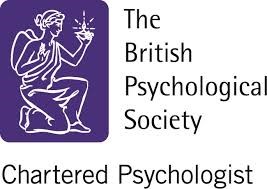Online pornography and the brain. How do I know if I am addicted to porn?
Frequently Asked Questions
All my friends look at porn. That’s what blokes do, right?
Yes, viewing porn is common and not inherently problematic. However, for some, it can become compulsive and addictive, particularly due to its impact on the brain’s dopamine reward pathways. This is especially true with high-speed online content that overstimulates the brain's “Seeking” circuit. If watching porn begins to dominate your time or affect relationships, it may be a problem worth addressing.
Test Yourself: Could I Have a Problem?
Ask yourself:
- Do you edge or masturbate for long periods but feel unsatisfied?
- Have you lost interest in sex with your partner?
- Are you using porn as a crutch for erection issues?
- Would you prefer solo porn use to partnered sex?
- Are you skipping responsibilities to view porn?
- Do you hide away online instead of being with family?
- Are you sleep-deprived due to late-night viewing?
- Do you get irritable and want to be alone with your screen?
- Do you view porn next to your sleeping partner?
- Do you feel anxious when offline?
If you answered "yes" to more than one question, it may be time to evaluate your use. Try stopping for a month. If you experience a dip in libido, that’s normal—it’s called flat-lining. Your arousal will return with time.
Am I really addicted, or do I just have a high sex drive?
A high sex drive and porn addiction can look similar, but addiction involves compulsive searching behavior driven by dopamine. Without porn, you might find your arousal levels return to a more natural baseline. It’s the intensity and overstimulation from porn—not necessarily your libido—that’s driving the behavior.
Is online porn a good way to educate my 12-year-old son about sex?
No. Porn typically lacks depictions of intimacy, consent, and emotional connection. It often portrays objectification and unrealistic scenarios. Instead, talk openly with your child about what they may encounter and explain how it differs from real, respectful sexual relationships.
I’m confused about my sexual orientation due to the variety of porn I’ve seen. What now?
Long-term exposure to diverse pornographic content can blur your sexual “template.” Everything seems arousing because of conditioned dopamine responses. To clarify your orientation, take a significant break from all sexual imagery—including fantasy. Over time, your natural preferences will emerge.
I’m 32, have erectile issues, and Viagra isn’t working—could porn be the cause?
Yes, it could be Porn-Induced Erectile Dysfunction (PIED). Prolonged overstimulation from porn can exhaust the arousal system. Try abstaining from both porn and masturbation for a month or more. If your erections return, this is likely the cause.
I sneak out of bed to watch porn and can’t stop. What can I do?
You may be dealing with addiction. The brain’s dopamine and opioid systems become desensitized, leading to tolerance and escalation. If you're scared by the material you’re viewing, it’s time to seek help—before legal consequences arise. Talk to your partner, consider therapy, and reach out to organizations like StopSO or SAA for support.
My counsellor says there’s no such thing as porn addiction. Is that true?
There is debate in the therapeutic community, but many people experience real distress, dysfunction, and compulsive behavior due to porn. If your use affects your mental health or relationships, it matters. For evidence-based insights, visit: Your Brain On Porn – Research Page
I’m 17 and sexting with friends. It’s just fun, right?
It might feel normal, but it can be legally risky. As a minor, sending or receiving explicit images—even consensually—can fall under Cyberflashing laws. Once you turn 18, any underage involvement becomes a serious legal offense. Speak to a trusted adult or a therapist for guidance.
I quit porn but can’t stop thinking about the bad images. What now?
You may be experiencing flashbacks, a symptom of visual trauma. These can happen when the brain is overwhelmed by shocking or disturbing content. Therapy can help you process these memories by creating a new narrative or “folder” for them. Recovery is possible—our brains are adaptable, even after years of exposure.




